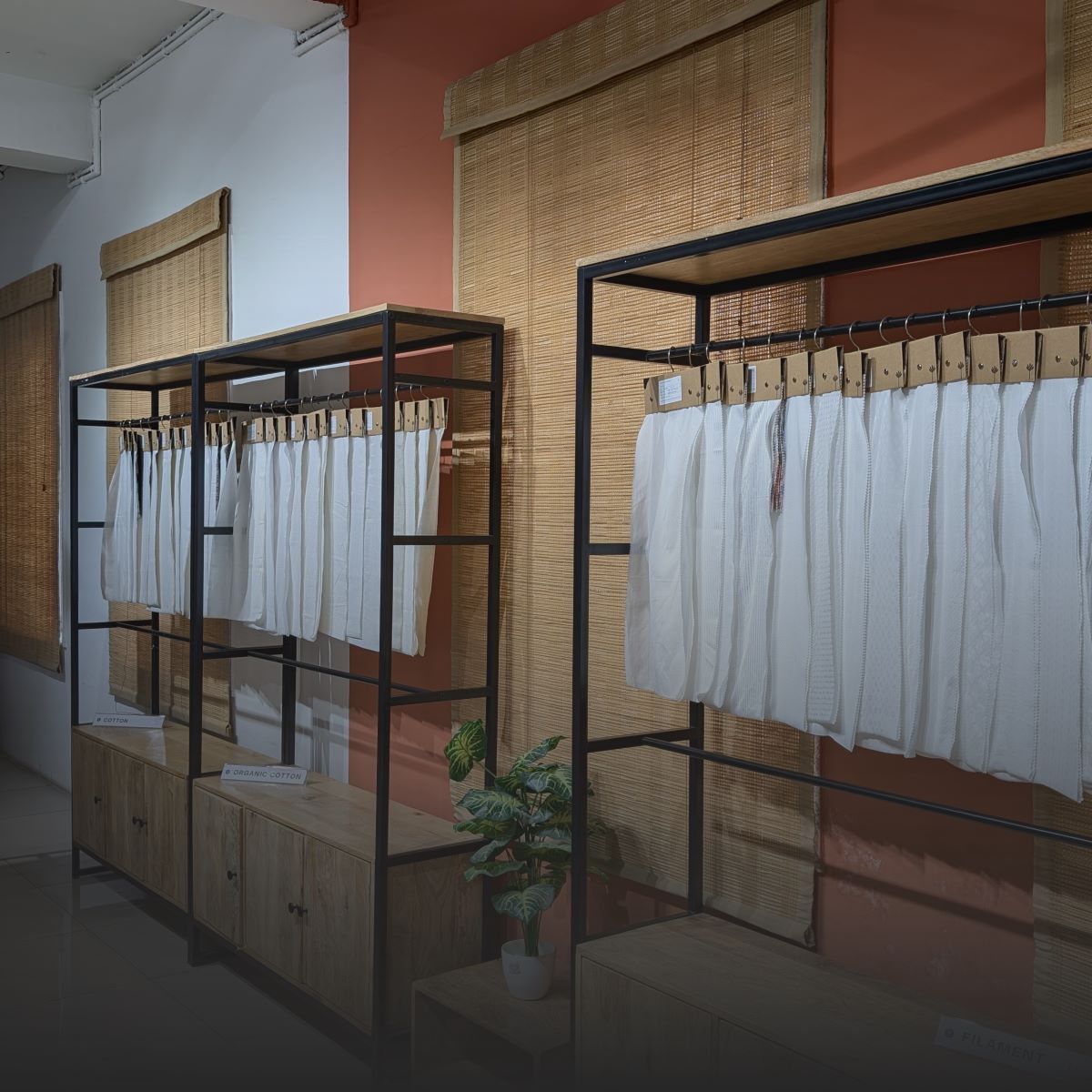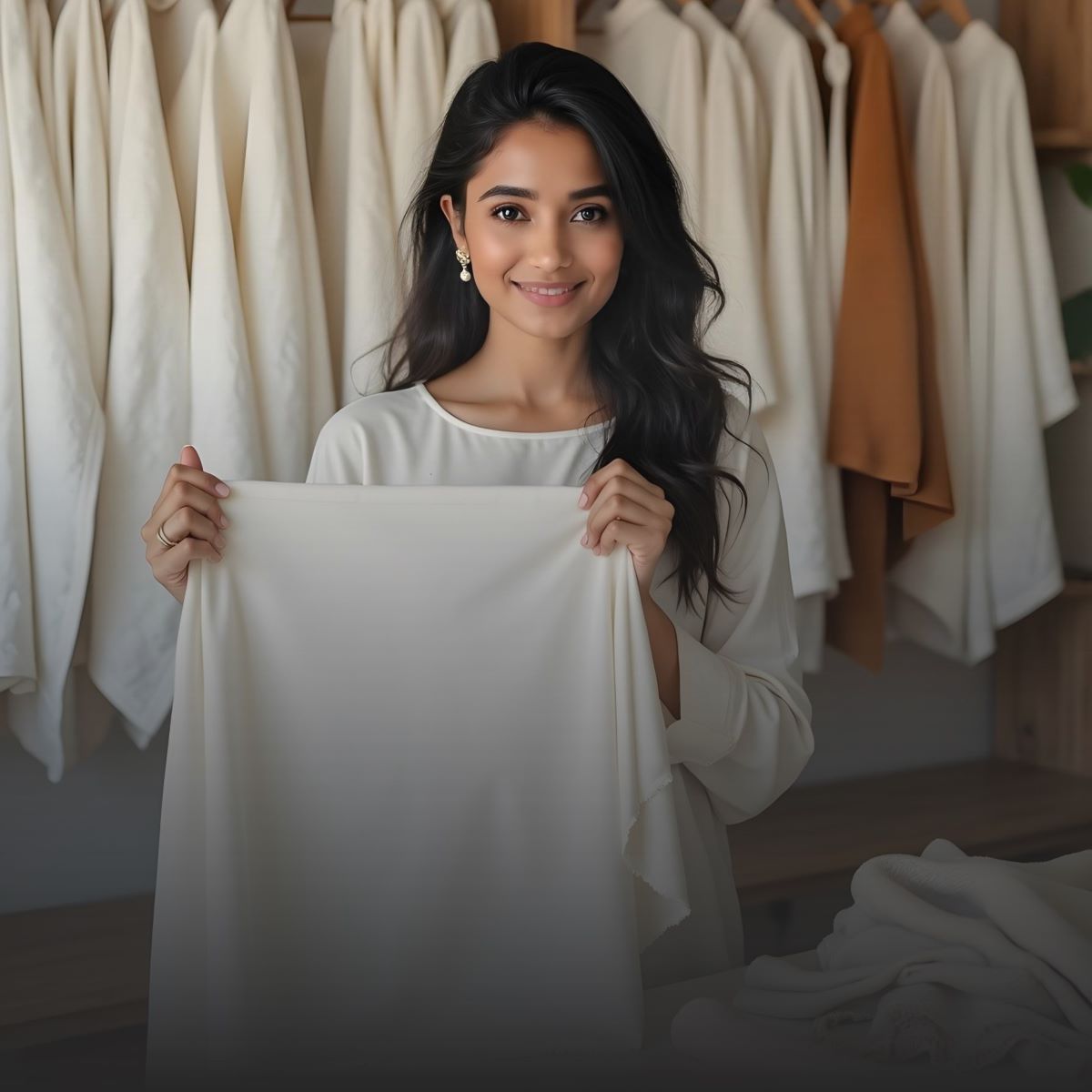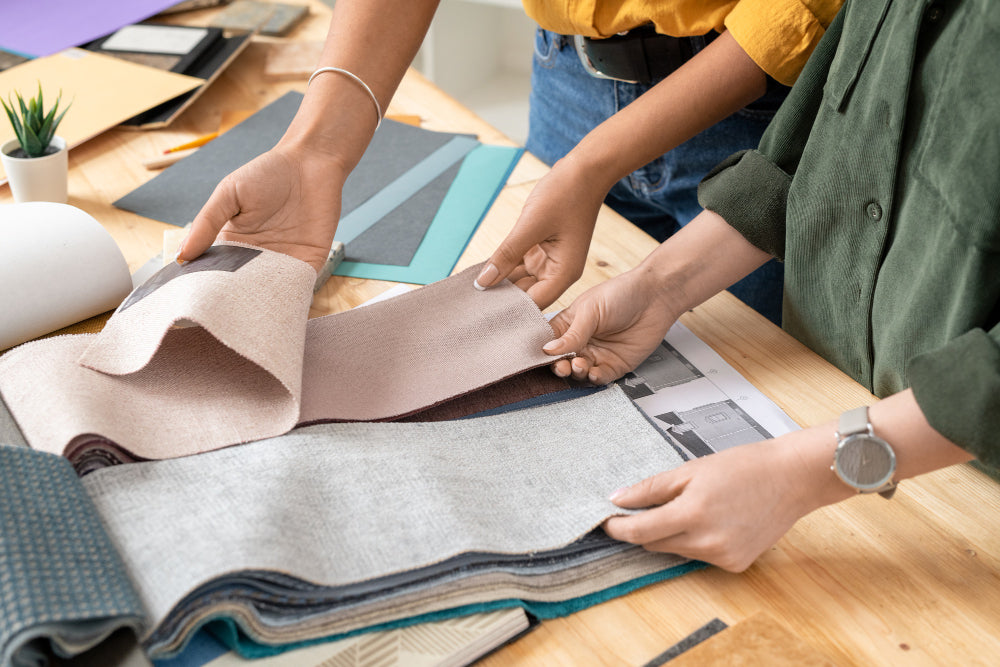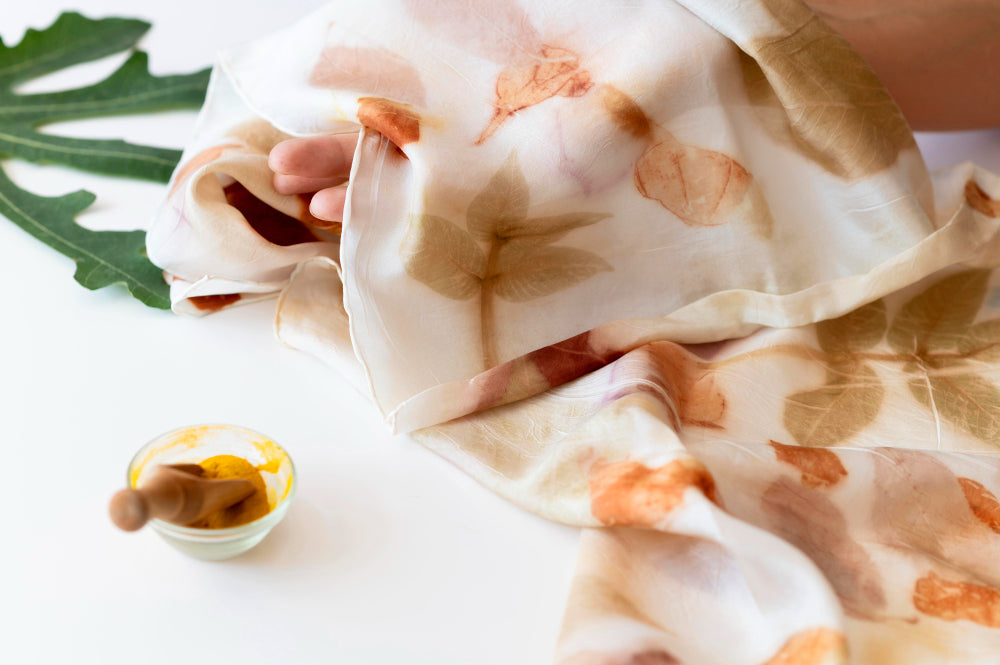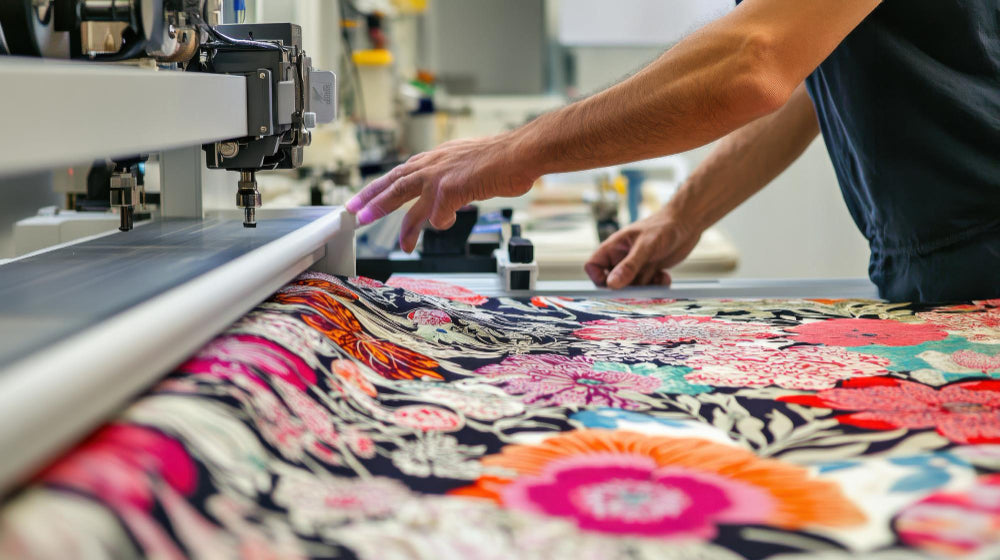For any fashion label, textile startup, or export manufacturer, sourcing "bulk fabric" is a critical endeavour. When buying cotton or linen fabric or starting a custom fabric printing project, it's essential to ensure the material meets high-quality standards. That's why in-house fabric inspection and testing services are crucial, not just an added benefit.
Modern platforms now provide integrated fabric testing tools that assess GSM, shrinkage, colourfastness, tensile strength, and eco-certifications. This guide highlights top solutions, particularly for those looking for sourcing and inspection combined, and outlines ways to reduce risk before scaling your fabric for production.
Why In-House Fabric Testing Matters For Fashion And Textile Businesses

Before you buy thousands of meters of "wholesale fabric," you should test it to make sure it's not a quality disaster. Testing fabrics make sure that the materials are strong, work well, and meet world standards. Different types of fabric, like "block print fabric," "viscose fabric," and "modal fabric," have other limits on how much they can stretch, fade, and shrink. It saves time, stops mistakes in production, and makes sure that the material meets technical requirements when there is a platform for "in-house testing and fabric quality inspection."
Well-rounded tests include:
- GSM and GLM weight confirmation.
- Shrinkage percentage under wash cycles.
- Colourfastness to light, rubbing, and washing.
- Tensile and tear strength.
- Seam slippage and drape behaviour.
- Weave and yarn composition verification.
At these prices, you're not just buying fabric; you're also putting in something that will work well and last.
Key Benefits:
- Avoids production losses.
- Ensures fabric consistency.
- Meets global quality norms.
- Helps reduce returns.
Top Platforms Offering In-House Fabric Inspection And Testing Services

"Quality is no longer optional — it's a benchmark" in the textile sector. Finding a platform that supplies fabric and delivers "reliable in-house inspection and testing services" can minimize risk and enhance product consistency for global brands, fashion entrepreneurs, and manufacturers.
The appropriate platform can prevent returns, maintain compliance, and verify fabric satisfies performance specifications for startups certifying swatches and major customers inspecting bulk orders. Top digital and physical platforms offering "GSM testing, shrinkage analysis, colourfastness tests", and more are listed below, with a focus on those that combine sourcing and testing into one seamless solution.
1. Fabriclore – In-House Testing With Swatch & Bulk Quality Reports
Website: fabriclore.com
Fabriclore stands out as one of India's leading "digital fabric sourcing platforms", providing reliable "wholesale fabric online" to designers, fashion brands, and garment manufacturers worldwide. Fabriclore stands out not just for its 1000+ fabrics but also for its "integrated in-house quality inspection", guaranteeing that every fabric roll is tested before it's dispatched. Their "4-point quality control process," based on global textile standards, effectively identifies and grades defects by severity and frequency per fabric yard — a reliable option for bulk buyers.
Key Testing & Quality Inspection Features:
- 4-Point Fabric Inspection System: A systemic check is done on every batch of "bulk fabric" using a defect classification method that is known all over the world. This includes checking for flaws in the weaving, the dye, the surface, and the general finish.
- Swatch-First Approach: It's possible for brands to "order swatches online" before committing to bigger orders. These are helpful for testing and getting feedback before production starts.
- GSM & Shrinkage Reports: Bulk orders come with specific information on "GSM, shrinkage %, and colourfastness," which lets changes be made to the production of clothes before they are made.
- Custom Testing on Request: Based on what the cloth will be used for, clients can ask for tests to be done on pilling, tensile strength, or colour rubbing.
- Sample Meterage for In-House Trials or 3rd Party Testing: Smaller lengths (1–5 meters) can be bought by designers for making prototypes or doing more testing in the lab.
- Global Shipping with QC Transparency: You can get "real-time updates and visual QC evidence" from Fabriclore no matter where you are in the world—the US, the UK, Europe, or the Middle East.
Best For:
There is a single digital-first tool that D2C fashion brands, boutique labels, slow fashion startups, and mid-scale producers can use to get "end-to-end textile sourcing and inspection services."
Why Choose Fabriclore?
- Integrated sourcing + testing.
- International shipping with quality checks.
- Custom printing on cotton, rayon, modal.
- Swatch samples are available for every listing.
2. Intertek Textile Testing – Global Lab Network
With ISO-certified labs around the world, Intertek is a well-known company that does "textile testing and fabric inspection." You can't use it to find fabric, but it's great for people who already have fabric and want to make sure it meets world compliance standards.
Services Include:
- Fiber composition analysis.
- Flammability and toxicity testing.
- Colorfastness and dimensional stability.
- Physical and mechanical property checks.
- Eco-label certification support (GOTS, OEKO-TEX).
Best For: Brands, exporters, and big manufacturers going into "regulated markets like the EU and USA."

3. Bureau Veritas – Fabric Testing & Inspection Services
Through its "international network of textile laboratories," Bureau Veritas tests fabrics, verifies lab dips, and does pre-production inspections. The tool is perfect for brands that care about safety, compliance with regulations, and long-term use.
Core Testing Capabilities:
- Seam strength, bursting strength, and crocking.
- UV resistance and water repellency.
- GRS and REACH regulation support.
- Custom testing plans for new developments.
Best For: International fashion brands and large production businesses that need "third-party validation"
4. Texanlab (India) – NABL Accredited Fabric Testing Lab
Texanlab, which is part of the "DyStar Group," is India's best textile testing lab. It can look at materials chemically and physically. They don't act as a sourcing tool, but they do take "sample submissions from any mill, exporter, or designer" who wants to make sure that fabric specs are correct.
Popular Tests Offered:
- Fabric weight & GSM.
- Tensile, tear, and burst strength.
- Formaldehyde content & dye bleed.
- Eco-compliance testing for OEKO-TEX certification.
Best For: Indian businesses that make and sell textiles want to try out fabrics quickly, legally, and cheaply.
How To Choose The Right Fabric Inspection Platform
Make sure the platform fits your "production scale, speed expectations, and export market needs" when choosing a partner to test or inspect fabrics. Check out these things:
- Certification & Accreditation: Make sure the labs you're looking at are certified by NABL, ISO, or OEKO-TEX.
- Turnaround Time: The amount of time it takes to get test reports and comments on swatches.
- Scope of Testing: Testing will look at mechanical, chemical, and weather factors.
- Integrated Sourcing: If you want to buy fabric and check it over on the same platform, use a platform that allows sourcing, like Fabriclore.
- Support & Advice: Look for platforms that offer more than just raw data; look for ones that also provide expert reviews.
Business Benefits of In-House Fabric Testing
When brands use "in-house or lab-based fabric inspection," the quality of their products is better, customers are happier, and there are fewer mistakes in production. In this age of eco-friendly fashion and growth based on exports, checking fabrics before they are made:
- Reduces returns & defects.
- Ensures compliance for eco-certifications (GOTS, OEKO-TEX, GRS).
- Builds trust with buyers & retail partners.
- Improves consistency across manufacturing batches.
- Saves costs by avoiding rework or wastage.
Final Thoughts: Get Started With Trusted Fabric Testing Platforms

Your brand is only as good as your fabric — and your fabric is only as good as its testing.
Where can you find a platform that offers in-house fabric inspection and testing services? If you need sourcing + quality assurance together, Fabriclore is the perfect choice for you. With Fabriclore's integrated swatch services, fabric wholesale, and in-house testing, you can avoid guesswork completely. When investing in print-on fabric or block print fabric, or when creating a slow fashion line, make sure to test every metre before it's stitched.
If you require lab-grade validation for export, Intertek, Texanlab, and Bureau Veritas can provide the credibility your buyers are looking for.
Make the right choice — inspect before you invest.
FAQs
1. What Is In-House Fabric Inspection, And Why Is It Important Before Production?
Ans: In-house fabric inspection means checking the quality of the fabric at the supplier's location for flaws, GSM, shrinkage, colourfastness, and structural soundness before it is sent out. It helps brands avoid production problems, keep quality consistent, and pass international compliance audits. Because of this, "fabric wholesale" businesses that do both local and foreign business need it.
2. Where can I get GSM and shrinkage test reports for fabric before bulk buying?
Ans: For every "bulk fabric" sale, platforms like Fabriclore give full GSM, shrinkage, and colourfastness reports. They also offer quality checks and pre-order swatches to make sure the fabric meets your technical and design needs before starting full-scale production.
3. Which are the best fabric testing labs in India for fashion brands and exporters?
Ans: Some of the best labs in India are Texanlab (which is certified by NABL), Intertek, and Bureau Veritas. These labs test textiles for OEKO-TEX, GOTS, and REACH compliance. Fabriclore is the best tool for sourcing and testing in-house at the same time. It offers 4-point inspections, support for "cotton fabric" and "viscose fabric," and global shipping.
4. Can I test fabric swatches for quality and colour before placing a bulk order?
Ans: Yes, you can "buy fabric swatches online in India" or anywhere else in the world on many digital sourcing sites like Fabriclore. Before placing a bigger order, these swatches help you check the GSM, texture, colour accuracy, and suitability for the type of garment or "custom fabric printing" method you want to use.
5. How do I choose the right platform for fabric inspection and textile testing services?
Ans: When choosing a fabric inspection platform, you should think about things like the testing scope (GSM, tensile strength, colourfastness), the platform's accreditation (ISO, NABL), how fast it makes reports, and whether it offers both buying and testing, like Fabriclore. When "wholesale fabric" importers and brands need third-party validation, they choose Intertek and Bureau Veritas.
6. What is the 4-point system for fabric inspection?
Ans: The 4-point system is a standard way to check for flaws in cloth used all over the world. It gives penalty points (1–4) based on the size and seriousness of the defect. This makes sure that the grades are always the same for quality control when buying and making "bulk fabric."
- Minor defects = 1 point.
- Medium flaws = 2 points.
- Large issues = 3 points.
- Major faults = 4 points.
- Acceptable limit = 40 points.
7. How do you inspect fabric?
Ans: Fabric inspection is the controlled examination of textiles to find flaws and check technical qualities such as GSM, shrinkage, and finish consistency before they are made into clothes or sent out for shipping. This is especially important for "linen fabric" and "block print fabric," which have very fine weaves.
- Use standard lighting setup.
- Check for weaving defects.
- Identify dye inconsistencies.
- Measure GSM & shrinkage.
- Grade fabric with systems.
8. What is AQL for fabric inspection?
Ans: Acceptable Quality Limit, or AQL, is a statistical sampling measure used to check the quality of textiles. It says how many flaws are okay in a batch, based on what the fabric will be used for and the quality standards of buyers or foreign markets, especially for exports of "fabric wholesale" and "print on fabric."
- Set AQL based on use.
- Common value: 2.5 level.
- Sample inspection method.
- Determine pass or reject.
- Global compliance standard.
